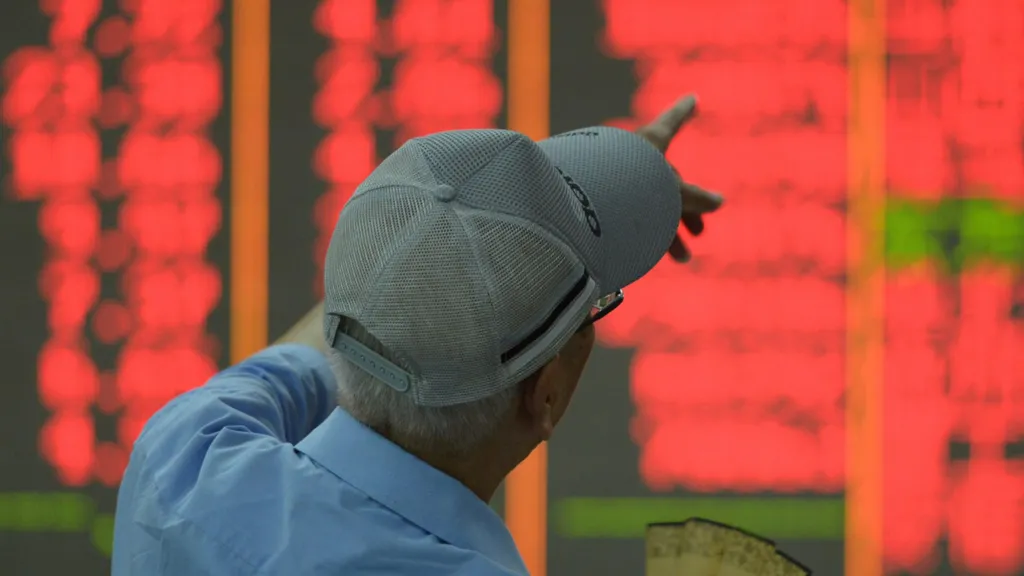Chinese Stock Market Rally Loses Momentum Following Disappointing Stimulus Announcement
3 min read

A recent stock market rally in China has lost momentum after a much-anticipated announcement regarding economic stimulus measures failed to meet investor expectations. Following the Golden Week holiday, shares surged over 10% as trading resumed but quickly retreated after a press conference held by the country’s economic planners.
In a volatile trading session, the Shanghai Composite Index closed 4.6% higher, while the Hang Seng Index in Hong Kong experienced a significant drop of 9.4%. Investor hopes were pinned on detailed plans from the government to invigorate the struggling economy, but the announcement provided scant information. Zheng Shanjie, chairman of China’s National Development and Reform Commission, expressed “full confidence” in achieving the nation’s economic and social objectives for the year. However, he also cautioned that “downward pressures on China’s economy are increasing.”
During the press conference, Zheng revealed that the government plans to allocate 200 billion yuan (approximately $28 billion or £21.5 billion) for various spending and investment projects by the end of the year. This announcement, however, did little to quell investor anxiety. Alicia Garcia-Herrero, chief economist for the Asia Pacific at Natixis, remarked, “The market really expected more. If the consumption data from Golden Week turns out to be weak, the correction will be even sharper.”
The mixed signals from the government have left many investors feeling unsettled. Garcia-Herrero further criticized the lack of substantial fiscal stimulus, suggesting that the press conference might not have been necessary if it was not going to yield new information.
Amid growing concerns that China may fall short of its ambitious annual growth target of 5%, the government has been working to restore confidence in the world’s second-largest economy. Since the onset of economic challenges, including a crisis-hit property sector and declining prices, investors have been increasingly drawn to Chinese stocks, encouraged by a series of government measures aimed at bolstering economic growth.
These measures have included targeted support for the beleaguered property market, initiatives to stabilize the stock market, cash assistance for lower-income households, and increased government spending. Despite these efforts, some economists argue that such policies may be insufficient to address the underlying economic issues facing China.
Many experts advocate for deeper structural reforms to place the economy on a more sustainable growth trajectory. As the nation continues to grapple with slowing growth, issues within the property sector, and other challenges, the effectiveness of the government’s current measures is under scrutiny.
Analysts note that while immediate stimulus measures can provide a short-term boost, they may not be enough to drive long-lasting recovery. The ongoing property market slump, coupled with falling consumer prices, has raised alarms about the sustainability of China’s economic rebound.
In light of these complexities, the market’s initial enthusiasm following the stimulus announcement has rapidly diminished. The uncertainty surrounding the government’s ability to stimulate growth effectively has left investors on edge, with many closely monitoring upcoming economic indicators, particularly consumer spending data from the recent Golden Week holiday.
As the economic landscape remains precarious, the need for comprehensive and effective policy measures is increasingly clear. Investors and economists alike are advocating for a more strategic approach that goes beyond temporary fixes and addresses the root causes of economic stagnation.
In summary, while the recent rally in Chinese stocks offered a glimmer of hope, the subsequent decline highlights the fragility of investor sentiment in the face of insufficient policy details and persistent economic challenges. The government’s ability to navigate these issues effectively will be critical in determining the future trajectory of both the stock market and the broader economy. As China seeks to regain momentum, the focus will likely remain on comprehensive reforms and sustainable growth strategies in the months ahead.